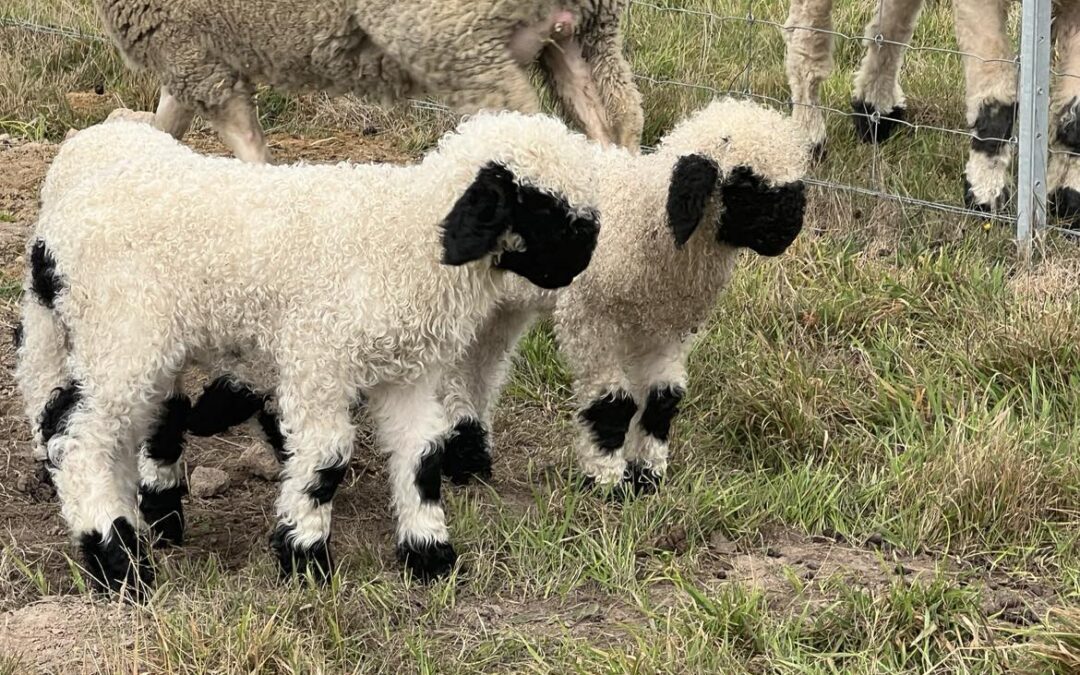Are you thinking of getting sheep for your hobby farm or small block? Watch this first to learn everything you need to know before making the commitment. From housing and feeding to breeding and health, we cover it all in this informative video!
Don’t start your sheep hobby or farming journey without watching this first.
Thanks to Farm Learning with Tim Thompson
Purchasing a Valais Blacknose Sheep can be an expensive and some times daunting process (what should I be looking for?).
These are the most gorgeous sheep, so you need to be thinking with your head and not your heart. Below is a checklist of things to consider:
1. Reputable Breeder:
Ensure that you are buying from a reputable breeder who prioritizes the quality of the breed and welfare of the animals over making a profit. Avoid purchasing from “puppy farm” equivalents in the sheep industry. Like all new things you will find people who truly care for their animals and others who are in it to make a quick buck. Look for a breeder who is a member of Valais Blacknose Australia and offers DNA tested sheep with a breeding certificate.
2. Seek Recommendations:
Join relevant sheep groups or associations on social media and reach out to experienced breeders. Go to sheep shows and enquire about their experiences with specific breeders and ask for recommendations.
3. Farmer Support and Advice:
Ask sheep owners about the support and advice that has been provided to them by the breeder during the purchase process. Did the breeder offer guidance and assistance? How responsive were they to queries or concerns?
4. Farm Inspection:
Visit the farm in person if possible. Assess the facilities, including shedding, shelters, winter housing, handling equipment, vet room, foot bathing care areas etc. A well-maintained and serviceable farm indicates the breeder’s commitment to sheep welfare.
5. Speak to Farm Staff:
Talk to farm staff or farmhands about the sheep and their care. They can provide valuable insights into the breeder’s practices and the overall condition of the animals.
6. Record Keeping:
Inquire about the availability and accuracy of the sheep’s history and the records of their parents. Thorough record-keeping is essential for tracking lineage and genetic traits.
7. Paddock Inspection:
Inspect the paddocks, noting their size, stock rates, grass cover, water availability, fence conditions, and the location of the animals. Well-maintained paddocks and proper animal distribution indicate good farm management.
8. Parasite Control:
Ask about the breeder’s approach to parasite control and paddock rotations. Inquire about the types of drenches used and whether they practice paddock rotations to prevent drench resistance.
9. Local Issues:
Discuss with the breeder any specific issues or problems they have faced with the Valais breed in your area. Determine if these issues will be relevant or problematic in your specific location.
10. Feeding Methods:
Determine whether the sheep were bottle-fed or mother-raised. If bottle-fed, enquire about the reasons behind this practice and whether it was in the best interest of the lambs.
11. Sire and Dam Assessment:
Inspect the parents (ewe and ram) of the lamb or sheep you are looking to purchase. Are they fit and healthy? Run your hands along the back of the sheep and feel for their back bone and hips. If they stand out and feel boney, then the animals may not be getting the feed their bodies need. How do the parents look? Are they well marked, do they have a solid “square” shape with a flat back or do they have low front shoulders and high back end? Additionally, assess the ram’s and ewe’s temperament to gauge their handling and care. Most well handled Valais have little fear of humans and enjoy human attention. This is one of the attractions of the Valais which makes their husbandry easy.
12. Breeding Selection:
Discuss with the breeder how they identify and select the animals for breeding. Determine if they prioritize selecting the best animals or if they simply breed with the available ones. This will give insight into the breeder’s commitment to quality.
13. New Bloodlines:
Find out if the breeder imports new bloodlines into the country and how they select these sheep. Assess whether they personally hand-select the highest quality animals or rely on online auctions or brokers for their animals.
14. Motivation:
Understand the breeder’s driving factors, whether they are motivated by quality or quantity, passion or money. Choosing a breeder who prioritizes quality and has a genuine passion for the breed can give you a better long term relationship.
15. Breed Standards:
Learn about the breed standards so that you know what a quality sheep should look like.
This a link to the breed standards:
Valais Blacknose Australia – Purebred Registry
By considering these factors and conducting thorough research, you can increase the likelihood of purchasing a healthy and high-quality sheep from a reputable breeder.
We wish you all the best on this exciting journey!
Phone
0438 530 067
gordillypark@gmail.com

